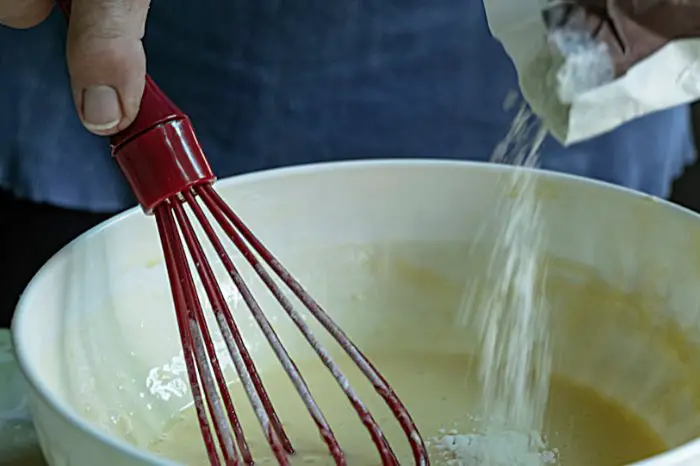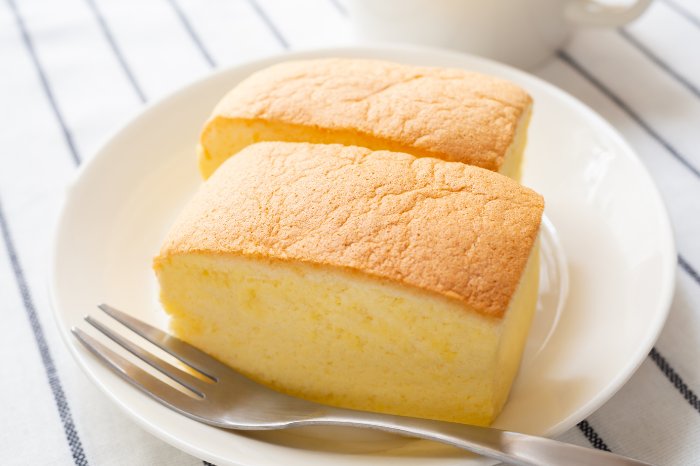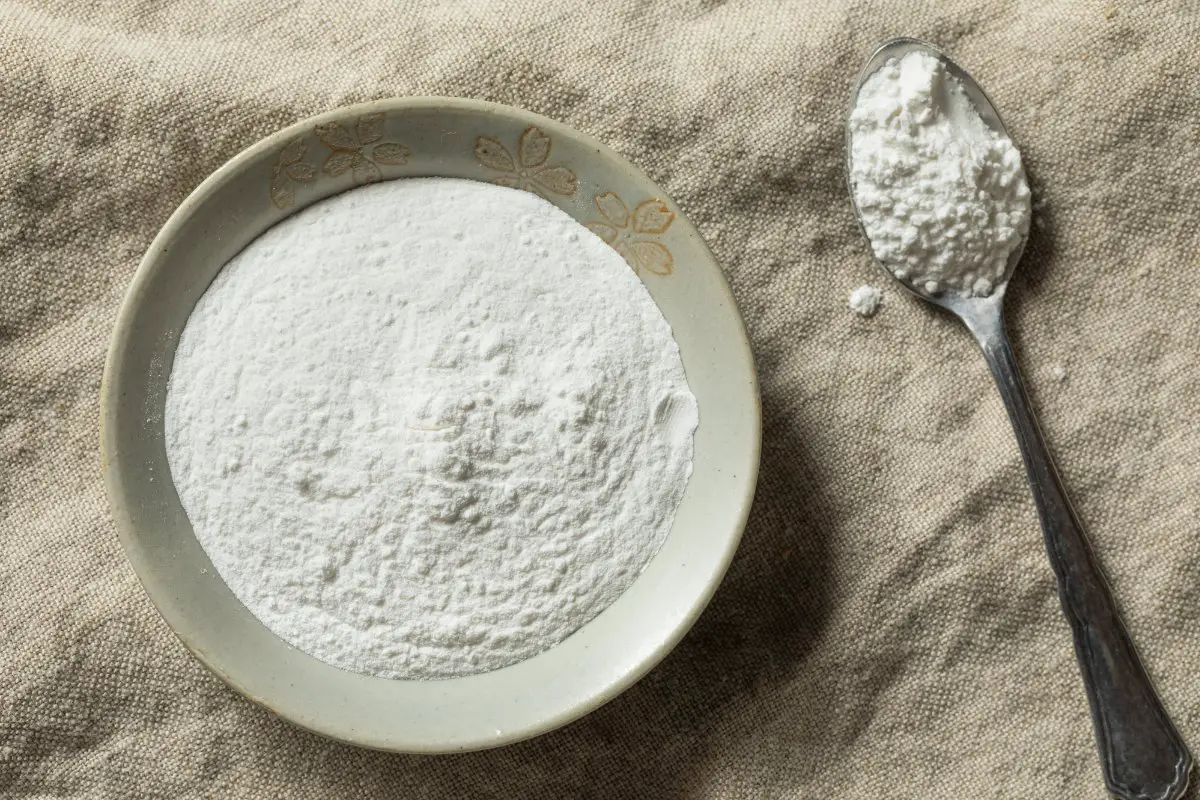Last Updated on February 1, 2023
Today, we’re going to be answering the question: does cream of tartar have dairy? And taking a look at which other dietary lifestyles you can have cream of tartar while following closely. Cream of tartar is a pantry staple in many households. It’s found in a selection of baked goods, such as cakes, cookies, and meringues. However, you may be wondering if cream of tartar is suitable for everyone. So, does cream of tartar have dairy? Let’s take a closer look.
What is Cream of Tartar?
You’ll likely have heard of cream of tartar, but do you know what it actually is? Scientifically speaking, cream of tartar is potassium hydrogen tartrate (or potassium bitartrate). It’s actually made as part of the winemaking process.
When you find it in the baking aisle of your grocery stores, it comes as a white powder. It’s used for a variety of reasons, such as to add flavor, texture and to help stabilize egg whites. You’ll find cream of tartar in a range of baked goods, such as meringue, cakes, and cookies.
Take Out Time to Also Read:
- How To Make A Book Cake Without Fondant: A Guide
- Egg Replacement in a Cake Mix: Egg-Cellent Alternatives
Ingredients in Cream of Tartar
While you may think there are many ingredients in cream of tartar, there actually is typically just one. The main ingredient in cream of tartar is potassium hydrogen tartrate (often listed as potassium bitartrate). It’s an acid that’s similar to the likes of vinegar or lemon. While you may not expect it to be, you can find this ingredient in the baking aisle.
Nutritional Information of Cream of Tartar
You may be wondering what the nutritional value is when it comes to cream of tartar. Each teaspoon contains the following:
- Calories: 8
- Fat: 0g
- Sodium: 1.6mg
- Potassium: 495mg
- Carbohydrate: 1.8g
- Dietary Fiber: 0g
- Sugar: 0g
- Protein: 0g
Is Cream of Tartar Dairy Free?
The name cream of tartar suggests that this product should contain dairy, as cream is a dairy product. However, despite the name, it does not contain any dairy. We mentioned briefly earlier that this ingredient is actually made as part of the winemaking process. Tartaric acid comes from grapes and is often found as a dried substance at the bottom of a wine barrel. For this reason, the only ingredient is typically potassium bitartrate, which is dairy free.
Is Cream of Tartar Gluten Free?
As well as being dairy-free, cream of tartar is also considered gluten-free too. As the only ingredient is usually potassium bitartrate, there is no reason to suggest that this ingredient is not naturally gluten-free and dairy free.

Is Cream of Tartar Vegan?
Yes. As well as being dairy and gluten-free, cream of tartar is vegan and vegetarian-friendly. The name can be quite misleading and people assume they can not have it when following specific dietary lifestyles, but you can absolutely can!
What is Cream of Tartar Made of?
Cream of tartar is made of potassium hydrogen tartrate (often listed as potassium bitartrate). It’s an acid that’s similar to the likes of vinegar or lemon. While you may not expect it to be, you can find this ingredient in the baking aisle.
Click Here to Get Info About:
- How Far in Advance Can You Make Fondant Decorations? Facts!
- Can Pecan Pie Be Frozen? 5 Helpful Tips!
What is Cream of Tartar Used For?
Cream of tartar has a surprising amount of uses, that range from usage in the kitchen to the bathroom, to baking. Let’s take a closer look.
The most common uses of cream of tartar are:
- stabilize egg whites (this is true for cakes and meringues)
- ingredient in baking powder, which helps to leaven baked goods
- stops sugar crystallization (in both caramel and sweets/candy)
- stain removal
- helps to whiten whites
- cleaning product
- aiding to make fluffier and lighter whipped cream
- adding a sharp, tangy taste to foods such as snickerdoodles
- the use of homemade playdough
- replacing buttermilk in any recipe of your choosing
This list is by no means exhaustive and there are lots of other ways you can use cream of tartar around the home.
Cream of Tartar, Premium Food-grade, non-GMO, Gluten-free, Vegan, Keto-friendly, Baking Agent
Health Benefits of Cream of Tartar
When it comes to introducing cream of tartar to your diet, there is a range of ways it can help. Some of the most common benefits are:
- helping to prevent arthritis
- a quitting smoking aid
- helping to prevent acne
- helping to remove belly fat
- aid constipation
- keto diet friendly
- helping to get rid of heartburn
- remedy for headaches/migraines
- helping to treat UTIs (urinary tract infections)
Best Cream of Tartar – Does Cream Of Tartar Have Dairy?
While there are a plethora of cream or tartar products available, the most popular option (and my favorite) is McCormick’s Cream of Tartar. It does not contain any allergens and is budget-friendly. You can pick it up from stores such as Walmart for around $3.
They market their cream of tartar as the perfect way to make light and fluffy desserts. Whether you’re making cake, meringue, pie, or frosting, their cream of tartar can elevate your desserts to the next level.
As well as what they aim to do, they also offer some useful tips when it comes to using the product. For example:
- when trying to stabilize egg whites in foods such as meringues, pies, and cakes, just add a small amount and beat well with the egg whites
- if you’re trying to make your own baking powder, all you need to do is add around 1/4 teaspoon of baking soda to a bowl, along with a 1/4 teaspoon of cornstarch and 1/2 teaspoon of cream of tartar. Mix well and you’ve got your own homemade baking powder.

Conclusion – Does Cream Of Tartar Have Dairy?
I hope this post has helped to answer the question: does cream of tartar have dairy? The simple answer is that cream of tartar should not contain any of the leading allergens and should be safe to include as part of any diet. You can use cream of tartar for reasons such as stabilizing egg whites and making your own baking powder.
Do you have any tips or tricks when it comes to baking with cream of tartar? If so, please feel free to let me know in the comments below. Sharing is caring!


